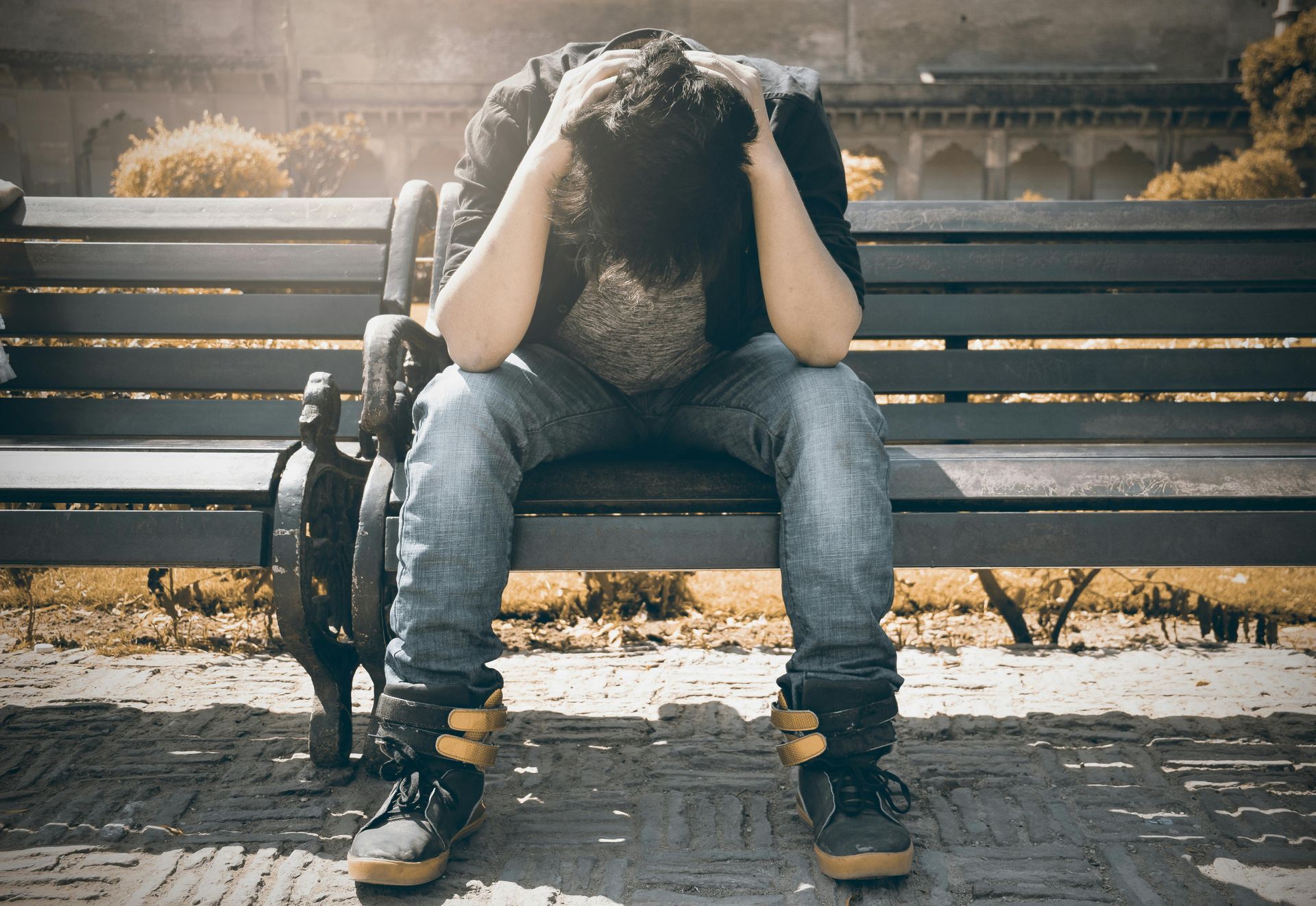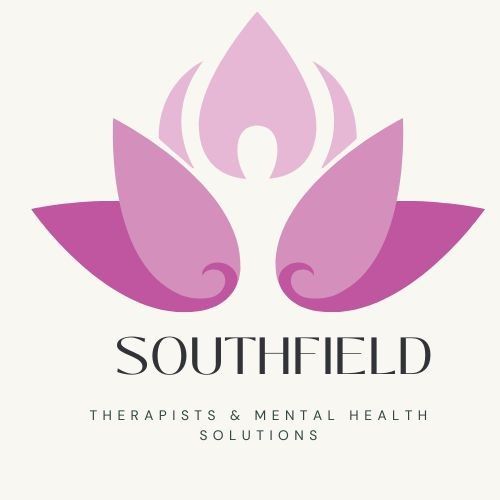The 7 Most Common Signs of Depression and When to Ask for Help
Understanding Depression: How to Recognize the Signs and Take the First Step Toward Recovery

Depression is one of the most common mental health conditions, affecting millions of people worldwide. Yet, despite its prevalence, it often goes unrecognized and untreated. Many people struggle in silence, not realizing that what they’re experiencing is more than just sadness—it’s a condition that requires understanding, care, and professional support.
At Southfield Therapists, we specialize in helping individuals identify and manage depression. By recognizing the early signs and understanding when to seek help, you can take control of your mental health and start your journey toward recovery.
In this blog, we’ll explore the seven most common signs of depression, how they manifest in everyday life, and when it’s time to reach out for professional support. If you’ve been feeling overwhelmed, lost, or disconnected, this guide can help you understand what’s going on and what steps you can take.
What Is Depression?
Depression is more than just a bad day or feeling “off” for a short time. It’s a serious mental health condition that can affect your mood, thoughts, physical health, and overall quality of life. Depression can make even the simplest tasks feel insurmountable and leave you feeling disconnected from the people and activities you once loved.
The causes of depression are multifaceted, including genetic, biological, environmental, and psychological factors. But one thing is clear: depression is treatable, and recovery is possible with the right support.
Let’s take a closer look at the signs of depression and how to recognize when it’s time to seek help.
The 7 Most Common Signs of Depression
1. Persistent Feelings of Sadness or Hopelessness
One of the most defining symptoms of depression is a deep, persistent sense of sadness or hopelessness that doesn’t go away. This isn’t the kind of sadness you feel after a bad day or disappointing news—it’s a pervasive feeling that lasts for weeks or even months.
People with depression often describe feeling like they’re stuck in a dark tunnel with no way out. You might feel emotionally numb, disconnected from your surroundings, or unable to find joy in things that used to make you happy.
2. Loss of Interest or Pleasure in Activities
Another key indicator of depression is a loss of interest in hobbies, activities, or relationships that you once enjoyed. Whether it’s spending time with loved ones, pursuing a passion, or even simple pleasures like listening to music or watching your favorite show, these activities may no longer bring you joy.
This symptom, called anhedonia, can create a sense of emptiness and disconnection, making it harder to engage with the world around you.
3. Changes in Appetite or Weight
Depression can significantly impact your eating habits, often in one of two ways:
- Decreased appetite: You might find yourself eating less or skipping meals altogether, leading to unintended weight loss.
- Increased appetite: On the other hand, some people turn to food for comfort, leading to overeating and weight gain.
These changes are not about willpower or discipline—they’re a reflection of how depression affects your brain and body.
4. Sleep Disturbances
Sleep issues are incredibly common among people with depression. You might experience:
- Insomnia: Difficulty falling asleep, staying asleep, or waking up too early and being unable to go back to sleep.
- Hypersomnia: Sleeping excessively but still feeling fatigued or unrefreshed.
Sleep disturbances can create a vicious cycle, as lack of rest can worsen depression symptoms, and depression can make it harder to get the restorative sleep you need.
5. Fatigue or Low Energy
Feeling tired all the time is another hallmark symptom of depression. This isn’t just regular fatigue—it’s an overwhelming lack of energy that makes even simple tasks feel exhausting.
You might find yourself avoiding responsibilities, canceling plans, or struggling to get out of bed in the morning. This lack of energy can contribute to feelings of guilt or inadequacy, creating a cycle that’s hard to break.
6. Difficulty Concentrating or Making Decisions
Depression often affects your ability to think clearly, focus, or make decisions. You might feel like your brain is in a fog or find it hard to remember important details. Tasks that once felt routine, like paying bills or planning meals, can suddenly feel overwhelming.
This cognitive impairment can impact your performance at work or school and add to feelings of frustration or helplessness.
7. Thoughts of Death or Suicide
Perhaps the most serious symptom of depression is experiencing thoughts of death or suicide. These thoughts might be fleeting or persistent, and they can feel deeply distressing.
If you’ve been having thoughts of self-harm or suicide, it’s crucial to reach out for help immediately. Your life matters, and support is available.
When to Seek Help for Depression
It’s not always easy to know when it’s time to ask for help. Many people try to cope on their own, hoping their feelings will improve with time. However, untreated depression can worsen over time, leading to more severe symptoms and complications.
Here are some signs it’s time to seek professional help:
- Your symptoms have lasted for more than two weeks.
- Depression is interfering with your work, school, or relationships.
- You’re experiencing physical symptoms like headaches, chronic pain, or digestive issues.
- You’ve had thoughts of self-harm or suicide.
- Coping strategies like talking to friends, exercising, or journaling aren’t helping.
At Southfield Therapists, we understand that reaching out can feel daunting. That’s why we’re here to offer a supportive, nonjudgmental environment where you can begin your journey toward healing.
How We Can Help
We specialize in treating depression with a personalized, compassionate approach. Here’s what you can expect when you reach out to us:
- Comprehensive Assessment: We’ll take the time to understand your unique experiences, symptoms, and goals.
- Evidence-Based Therapy: Our treatment plans are grounded in proven methods, such as cognitive-behavioral therapy (CBT) and mindfulness-based techniques.
- Collaborative Care: We’ll work with you to develop a treatment plan that meets your needs and fits your lifestyle.
- Ongoing Support: Whether you’re seeking individual counseling or group therapy, we’ll be with you every step of the way.
You don’t have to face depression alone. Our team is here to help you find relief, build resilience, and rediscover joy in life.
FAQs About Depression
1. How do I know if I’m depressed or just having a tough time?
If your feelings of sadness or hopelessness last more than two weeks and interfere with your daily life, it could be a sign of depression.
2. Can depression go away on its own?
While mild depression may improve with time, moderate to severe depression often requires professional treatment.
3. Is therapy or medication better for depression?
Both therapy and medication can be effective, depending on the individual. At our clinic, we focus on creating a personalized treatment plan that works for you.
4. How long does it take to feel better with therapy?
The timeline varies, but many people notice improvements within a few weeks. Consistency and commitment to the process are key.
5. How can I help a loved one with depression?
Be patient, listen without judgment, and encourage them to seek professional help.
6. Is it normal to feel nervous about starting therapy?
Yes! It’s completely normal to feel unsure or nervous. Our team is here to make you feel as comfortable as possible.
